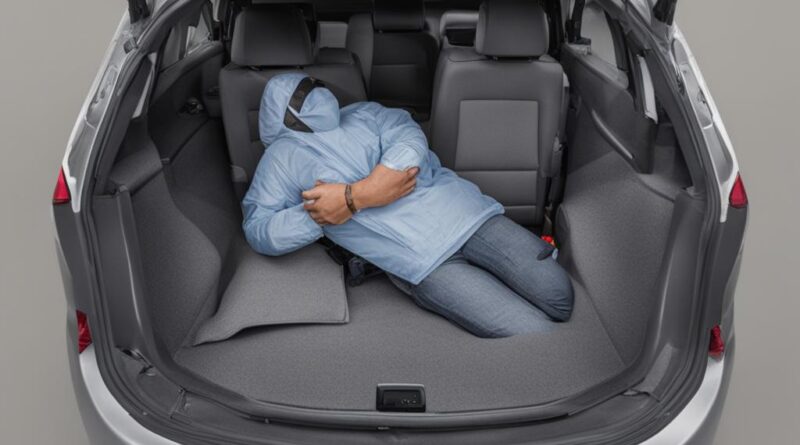Chest Pain After Car Accident: Seek Evaluation
Experiencing chest pain after a car accident can be a cause for concern. Chest pain can range from mild discomfort to severe pain, and it can be a sign of various injuries, including muscular strain, heart damage, or internal bleeding.
It is crucial to seek immediate medical evaluation if you have chest pain after a car accident. Prompt evaluation by a healthcare professional is essential for proper diagnosis and treatment. Additionally, contacting a car accident lawyer can help protect your legal rights in case you need to pursue compensation for your injuries.
Key Takeaways:
- Chest pain after a car accident can indicate different types of injuries, requiring immediate medical attention.
- Prompt evaluation by a healthcare professional is crucial for accurate diagnosis and appropriate treatment.
- Seeking the assistance of a car accident lawyer can help protect your legal rights and ensure fair compensation for your injuries.
- Do not delay seeking medical evaluation if you experience chest pain after a car accident, as it can worsen the injuries and lead to complications.
- Proper medical documentation is essential for insurance claims and potential legal actions related to the car accident.
Causes of Chest Pain After a Car Accident
Experiencing chest pain after a car accident can be a distressing ordeal. Understanding the underlying causes of this chest pain is crucial for proper diagnosis and treatment. The primary reason for chest pain after a car accident is the force from the impact itself. The collision can result in various injuries directly related to the chest hitting the steering wheel. These injuries include bruises, abrasions, or muscular strain.
However, there are other contributing factors that can lead to chest pain after a car accident. Dislocation or separation of rib cage parts can occur due to the sudden force of the impact. Breathing problems can arise from injuries to the lungs or rib cage, causing chest pain. Rotational injuries, where the body is twisted or turned sharply during the accident, can also lead to chest pain. Even hyperventilation caused by the stress of the car accident can manifest as chest pain.
It is important to note that seatbelts, while crucial for safety, can also cause chest injuries if not used properly. The force exerted by the seatbelt during a collision can result in chest pain or discomfort. Understanding the potential causes of chest pain after a car accident allows medical professionals to provide appropriate diagnosis and treatment.
Common Causes of Chest Pain After a Car Accident:
- Impact force from the collision
- Direct injuries from the chest hitting the steering wheel
- Dislocation or separation of rib cage parts
- Breathing problems due to lung or rib injuries
- Rotational injuries
- Hyperventilation caused by stress
- Improper use of seatbelts
Recognizing these causes can help individuals seek the appropriate medical attention and understand the potential complications associated with chest pain after a car accident.
Comparison of Common Causes of Chest Pain After a Car Accident
| Causes | Description |
|---|---|
| Impact force from the collision | The force generated from the collision can cause chest pain and various injuries. |
| Direct injuries from the chest hitting the steering wheel | The chest hitting the steering wheel can result in bruises, abrasions, or muscular strain. |
| Dislocation or separation of rib cage parts | The sudden force of the impact can lead to the dislocation or separation of rib cage parts, causing chest pain. |
| Breathing problems due to lung or rib injuries | Injuries to the lungs or rib cage can cause breathing difficulties and chest pain. |
| Rotational injuries | Twisting or turning motions during the accident can result in chest pain. |
| Hyperventilation caused by stress | The stress of the car accident can lead to hyperventilation, which presents as chest pain. |
| Improper use of seatbelts | If seatbelts are not used properly, they can contribute to chest injuries and pain. |
Seatbelt-Related Chest Injuries
Seatbelts, although crucial for safety, can cause chest injuries after a car accident. The powerful force exerted by the seatbelt during impact can result in various types of injuries to the chest area. These injuries can range from minor bruising to more severe conditions such as fractured sternum, muscular strain, rib fractures, or even organ damage. Additionally, the rapid acceleration and deceleration associated with the use of seatbelts can sometimes lead to whiplash-like conditions.
If you experience chest pain following an auto collision, it is essential to seek immediate medical attention. Medical professionals can evaluate your condition and identify any potential seatbelt-related injuries. Prompt medical intervention is crucial to rule out serious chest injuries caused by seatbelt use.
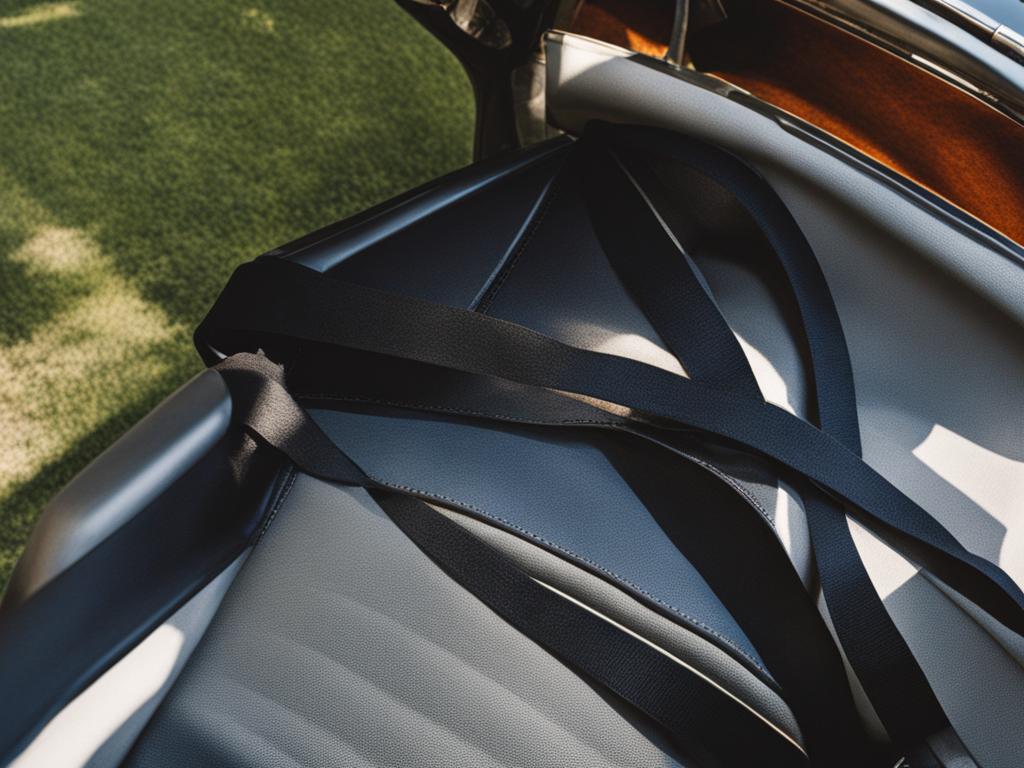
| Type of Injury | Description |
|---|---|
| Bruising | Superficial damage to the skin and underlying tissues caused by the seatbelt restraining force. |
| Fractured Sternum | A break in the breastbone resulting from significant force applied to the chest during the accident. |
| Muscular Strain | Injury to the chest muscles due to the sudden impact or force from the seatbelt. |
| Rib Fractures | Cracked or broken ribs caused by direct impact with the seatbelt or other objects in the vehicle. |
| Organ Damage | Injury to internal organs, such as the heart or lungs, caused by the forceful compression from the seatbelt. |
It is important not to underestimate the potential harm of seatbelt-related chest injuries. Even seemingly minor symptoms should be examined by medical professionals to ensure proper diagnosis and treatment. Seeking medical attention promptly can prevent further complications and promote a faster recovery.
Treating Chest Injuries After a Car Accident
When it comes to treating chest injuries after a car accident, seeking immediate medical attention is crucial. Proper evaluation by physicians is essential to determine the extent of the injury and develop a personalized treatment plan. The goal is to alleviate pain, promote healing, and prevent further complications.
Medical Evaluation and Treatment Plan
Medical evaluation plays a vital role in determining the appropriate treatment for chest injuries. Physicians will assess the severity of the injury through physical examinations and diagnostic tests, such as X-rays or CT scans. Based on the evaluation, they will create a treatment plan tailored to the individual’s specific needs.
In the case of chest injuries, early intervention is crucial to prevent complications and ensure optimal recovery. Seeking medical attention promptly allows for timely diagnosis and appropriate treatment.
Treatment Options
The treatment options for chest injuries after a car accident may vary depending on the extent and type of injury. Some common treatment modalities include:
- Rest: Providing ample rest and avoiding strenuous activities allows the body to heal properly.
- Physical Therapy: Physical therapy exercises help strengthen the muscles, improve mobility, and reduce pain.
- Medications: Pain medications, muscle relaxants, or anti-inflammatory drugs may be prescribed to manage pain and promote healing.
- Heat and Cold Therapies: Applying heat or cold packs can help reduce inflammation and relieve pain.
- Lifestyle Changes: Making lifestyle modifications, such as proper posture, avoiding repetitive motions, or using ergonomic aids, can prevent further injury and promote healing.
Psychological Support
It’s important to not only address the physical aspect of chest injuries but also the psychological impact they can have. Car accidents can be traumatic events, resulting in emotional distress and anxiety. Seeking psychological support, such as therapy or hypnotherapy, can help individuals cope with the mental health issues related to the trauma and facilitate overall recovery.
Collecting Evidence for a Car Accident Claim
If you have chest pain from a car accident, it is important to collect evidence to support your car accident claim and establish fault. Gathering the right documentation can significantly strengthen your case and help you receive the compensation you deserve. Here are some key pieces of evidence to collect:
1. Police Reports
An example of a police report:
Case Number: 123456
Date and Time: April 10, 2022, 3:45 PM
Location: Intersection of Main Street and Oak Avenue
Involved Parties: John Smith (Driver A) and Jane Johnson (Driver B)
Description: Driver A failed to stop at a red light, resulting in a collision with Driver B.
Witnesses: Sarah Davis, James Thompson
Officer’s Name: Officer Jackson
2. Photographs
Take clear and detailed photographs of the accident scene, vehicle damage, skid marks, road conditions, and any visible injuries. These photographs will serve as visual evidence and help recreate the events leading up to the accident.
3. Witness Statements
Obtain statements from witnesses who saw the accident. Their testimonies can provide additional perspectives and support your version of events. Make sure to document their names, contact information, and a summary of what they witnessed.
4. Medical Records
Keep a record of all medical visits related to your chest pain. This includes doctor’s notes, test results, prescriptions, and receipts for medical expenses. These records demonstrate the extent of your injuries and the medical treatment you have received.
5. Details of the Incident
Write down a detailed account of the accident, including the date, time, and location. Note any weather conditions, road hazards, or distractions that may have contributed to the collision. These details provide context and help establish fault.
| Evidence | Description |
|---|---|
| Police Reports | Official documentation of the accident, including details of the incident and involved parties. |
| Photographs | Visual evidence of the accident scene, vehicle damage, and any visible injuries. |
| Witness Statements | Testimonies from witnesses who saw the accident and can support your claim. |
| Medical Records | Records of medical visits, doctor’s notes, test results, and receipts for medical expenses. |
| Details of the Incident | A comprehensive account of the accident, including date, time, location, and contributing factors. |
By gathering and preserving this evidence, you can present a strong case to insurance companies or in a court of law. Remember, consulting with a car accident lawyer can provide valuable guidance throughout the claims process and ensure your rights are protected.
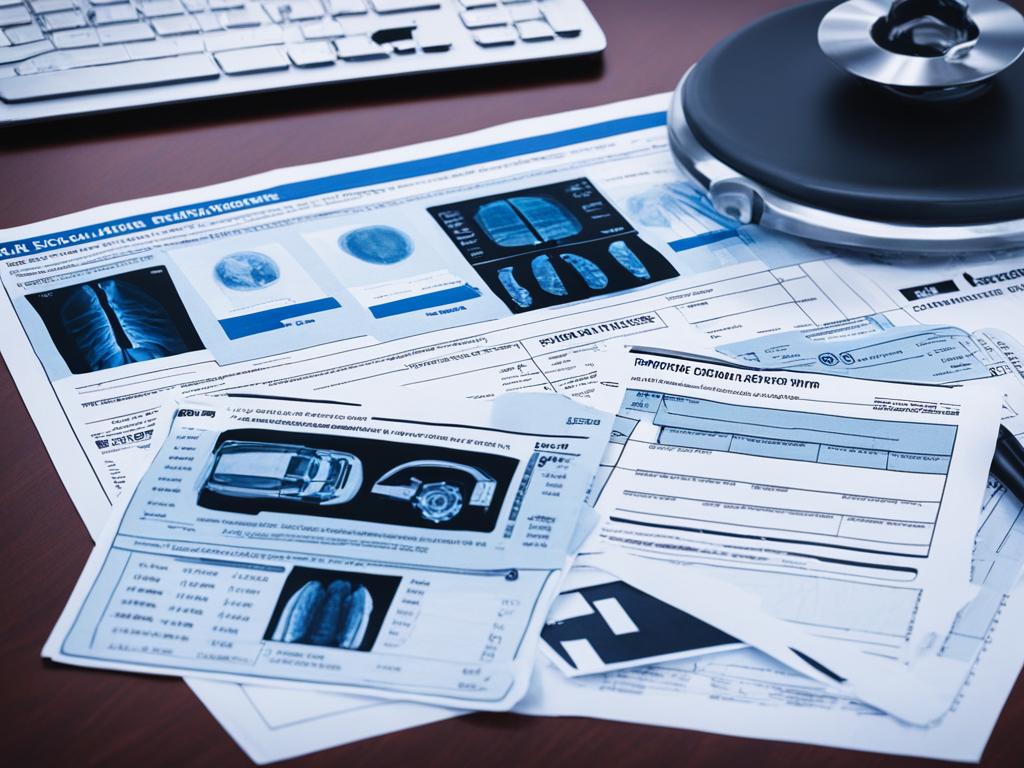
Seeking Follow-Up Treatment for Chest Pain Injury
After experiencing chest pain following a car accident, it is crucial to prioritize follow-up care. Seeking appropriate medical attention and treatment can help monitor potential complications, ensure the effectiveness of prescribed medications, and address any mental health implications resulting from the accident. Follow-up care plays a crucial role in minimizing the long-term effects of chest injuries and promoting the best possible recovery outcome.
Depending on the severity of the injury, various treatment options may be recommended by healthcare professionals. These may include:
- Massage therapy: This hands-on technique can help reduce muscle tension, promote relaxation, and relieve pain in the chest area.
- Acupuncture: By targeting specific points on the body, acupuncture may help alleviate pain and improve overall well-being.
- Chiropractic care: Chiropractors may utilize spinal adjustments and other techniques to alleviate pain and restore proper function to the musculoskeletal system.
Seeking follow-up care is vital for monitoring your progress, ensuring that prescribed treatments are effective, and addressing any ongoing issues resulting from your chest pain injury. It is important to work closely with healthcare professionals to develop a personalized treatment plan that caters to your unique needs and promotes optimal recovery.
| Treatment Options | Description |
|---|---|
| Massage therapy | This hands-on technique can help reduce muscle tension, promote relaxation, and relieve pain in the chest area. |
| Acupuncture | By targeting specific points on the body, acupuncture may help alleviate pain and improve overall well-being. |
| Chiropractic care | Chiropractors may utilize spinal adjustments and other techniques to alleviate pain and restore proper function to the musculoskeletal system. |
Collaborating with qualified healthcare professionals for follow-up treatment ensures that you receive the necessary care to minimize long-term consequences and achieve the best possible outcome.
Avoid Discussing Chest Pain with Insurance Company
When dealing with insurance companies after a car accident, it is important to approach the topic of chest pain with caution and avoid discussing it without consulting an attorney. Insurance companies may downplay the severity of chest pain or push back on medical expenses related to its treatment. To protect your rights and ensure fair compensation for your injuries, it is advisable to have legal representation advocating on your behalf.
Insurance adjusters are trained to minimize payouts and may attempt to use discussions about chest pain against you during the claims process. They may argue that the chest pain was not a direct result of the accident or that it is unrelated to the injuries sustained. By involving an attorney, you can navigate through these challenges and have someone fight for your rights and fair compensation.
Consulting with a car accident lawyer allows you to have a legal professional analyze your case and provide guidance on how to handle discussions about chest pain with the insurance company. They can advise you on what to say or not say, ensuring that you do not unintentionally compromise your claim.
An attorney can also help gather the necessary evidence to support your claim for compensation, such as medical records and expert opinions. They can negotiate with the insurance company on your behalf, aiming for a fair settlement that adequately covers your medical expenses, pain and suffering, lost wages, and other damages related to your chest pain and injuries.
By seeking legal representation and avoiding direct discussions about chest pain with the insurance company, you increase your chances of receiving the compensation you deserve. Remember, insurance companies are primarily focused on minimizing costs, while your attorney is solely dedicated to protecting your rights and ensuring you receive proper compensation for your car accident injuries.
Common Chest Injuries After a Car Accident
Chest injuries after a car accident can result in a range of issues, from muscle strains to more severe internal injuries. It is crucial to be aware of the types of chest injuries that can occur and the symptoms that may indicate a serious condition.
1. Muscle Strains:
A common chest injury after a car accident is a muscle strain. The force of impact can cause the muscles in the chest to stretch or tear, leading to pain and discomfort. This type of injury can be treated with rest, pain medication, and physical therapy.
2. Broken Bones:
Car accidents can also result in broken ribs, sternum, or collarbones. These injuries can cause severe chest pain, difficulty breathing, and may require immobilization or surgical intervention for proper healing.
3. Lung Injuries:
The impact of a car accident can cause lung injuries such as pneumothorax (collapsed lung) or pulmonary contusion (bruised lung). These injuries can cause chest pain, shortness of breath, and difficulty breathing. Immediate medical attention is essential to prevent further complications.
4. Heart Injuries:
In rare cases, a car accident can lead to heart injuries, such as a myocardial contusion (bruised heart) or cardiac rupture. These injuries can cause chest pain, irregular heart rhythms, and other serious symptoms. Emergency medical treatment is crucial for proper diagnosis and management.
5. Other Internal Injuries:
Car accidents can also result in other internal injuries within the chest cavity, such as damage to organs like the liver, spleen, or diaphragm. These injuries may not always be immediately evident, but symptoms can include chest pain, abdominal pain, and difficulty breathing. Prompt medical evaluation is necessary to identify and treat these injuries.
If you experience chest pain or any symptoms of a chest injury after a car accident, it is important to seek immediate medical attention. Chest injuries can be serious and potentially life-threatening, requiring prompt diagnosis and appropriate treatment.
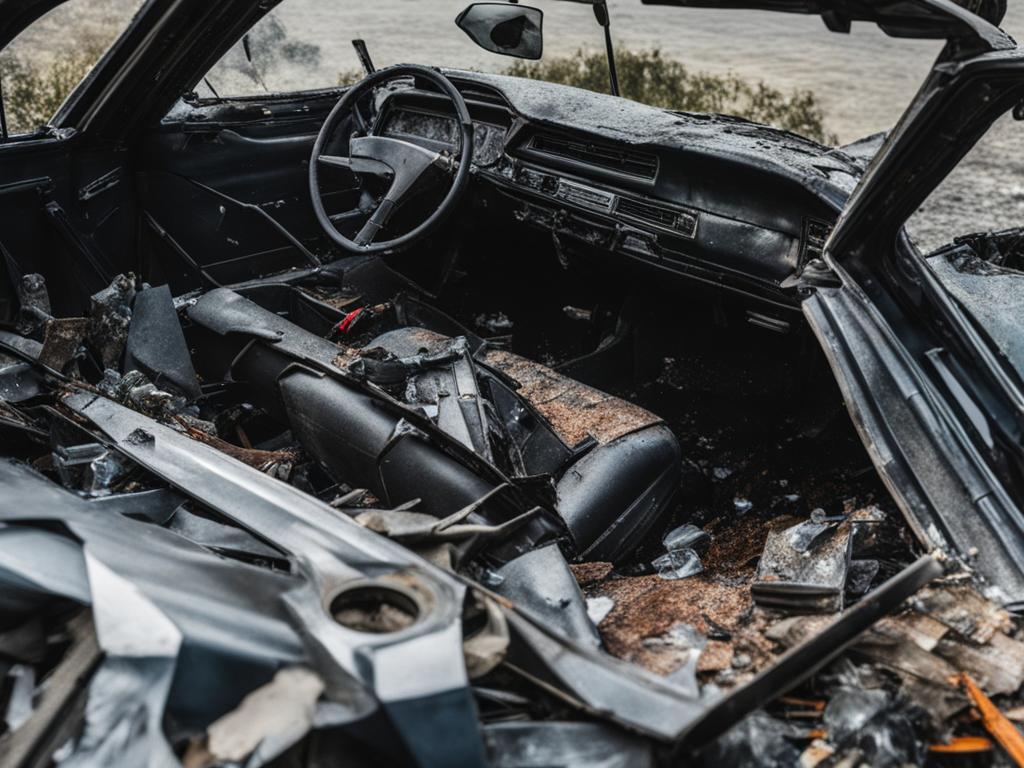
Common Causes of Chest Pain After a Car Accident
Experiencing chest pain after a car accident can be a distressing symptom. It is important to understand the common causes of chest pain to ensure appropriate medical evaluation and treatment. The following are some potential causes:
- Anxiety: The stress and trauma associated with a car accident can trigger anxiety, which may manifest as chest pain. Anxiety can cause muscle tension and hyperventilation, leading to discomfort in the chest area.
- Muscle Strains: During a car accident, the force of impact can cause strain and sprain in the chest muscles. The abrupt movement or jerking motion can lead to chest pain that worsens with certain movements or deep breathing.
- Broken Ribs: The collision’s impact can fracture ribs, resulting in sharp, stabbing chest pain. The pain may worsen with movement or deep breathing, making it difficult to find a comfortable position.
- Lung Injuries: In severe car accidents, the chest may sustain injuries to the lungs, such as contusions, pneumothorax (collapsed lung), or hemothorax (blood in the chest cavity). These injuries can cause chest pain, difficulty breathing, and coughing up blood.
- Heart Injuries: Although rare, car accidents can cause direct trauma to the heart, leading to chest pain. The forceful impact or internal injuries may affect the heart’s structures or blood supply, resulting in angina or other cardiac symptoms.
- Other Internal Injuries: Car accidents can also cause injuries to other organs within the chest, such as the spleen or liver. These injuries may cause chest pain in addition to other symptoms specific to the affected organ.
If you experience chest pain after a car accident, it is crucial to seek medical evaluation promptly. A healthcare professional can assess the severity of your injuries, identify the specific cause of your chest pain, and develop an appropriate treatment plan.
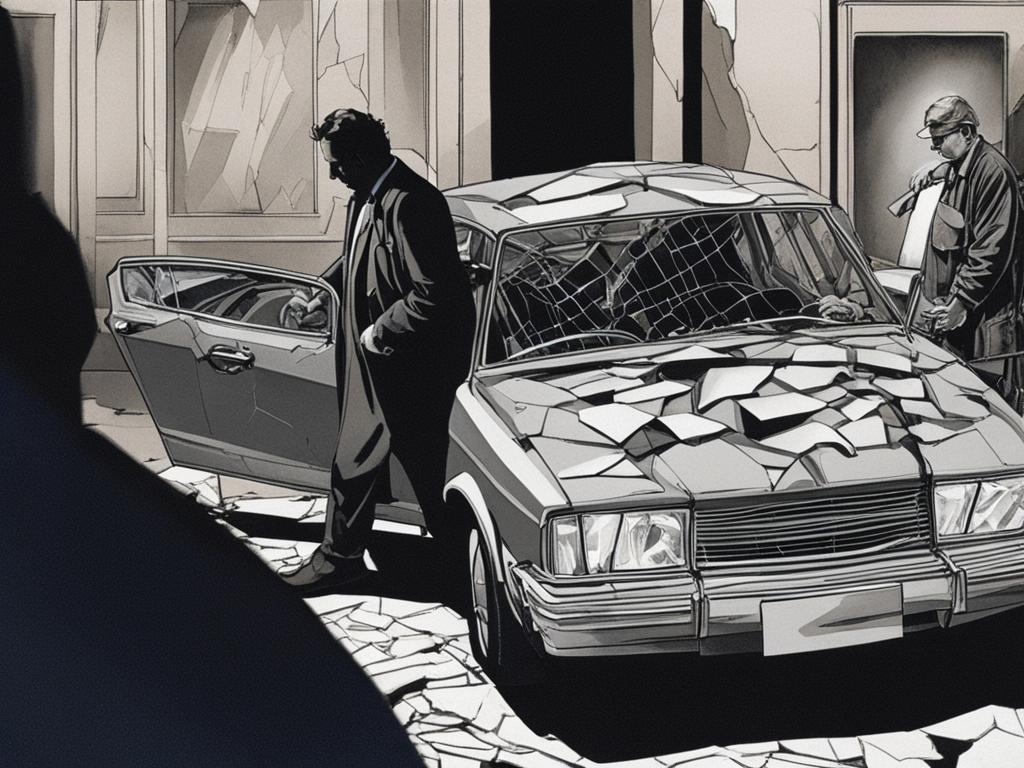
Treatment Options and Compensation for Car Accident Chest Injuries
After experiencing a car accident chest injury, it is crucial to explore treatment options that can aid in your recovery. The severity of the injury will determine the course of treatment, which may include:
- Emergency care: Immediate medical attention is essential to address any life-threatening conditions or injuries.
- Diagnostic testing: X-rays, CT scans, or other imaging tests can help identify the specific chest injuries and guide treatment decisions.
- Surgeries: In more severe cases, surgical intervention might be necessary to repair damaged organs, stabilize fractures, or address internal bleeding.
- Physical therapy: Rehabilitation exercises and techniques can aid in healing, improve mobility, and restore chest strength.
- Prescription medications: Pain relievers, muscle relaxants, or anti-inflammatory drugs may be prescribed to manage pain and reduce inflammation.
- Medical equipment: Braces, splints, or assistive devices might be recommended to support the chest during the healing process.
- Mental health support: Psychological counseling or therapy can be beneficial in addressing any emotional distress or trauma resulting from the accident.
Seeking compensation for your car accident chest injuries is important to cover the financial burdens associated with medical treatment, lost income, and other consequences. There are two main avenues for seeking compensation:
- Filing an insurance claim through personal injury protection (PIP) coverage: PIP coverage typically provides compensation for medical expenses, lost wages, and other economic losses regardless of who was at fault for the accident.
- Pursuing a third-party claim against the at-fault driver: If another driver caused the accident, you may be eligible to file a claim against their insurance or pursue a legal action to seek compensation for damages, including medical expenses, pain and suffering, and other non-economic effects of the injury.
It is advisable to consult with a car accident lawyer who specializes in personal injury cases. They can guide you through the legal process, help gather evidence, negotiate with insurance companies, and advocate for your rights. With the support of legal representation, you can pursue the compensation you deserve and focus on your recovery.
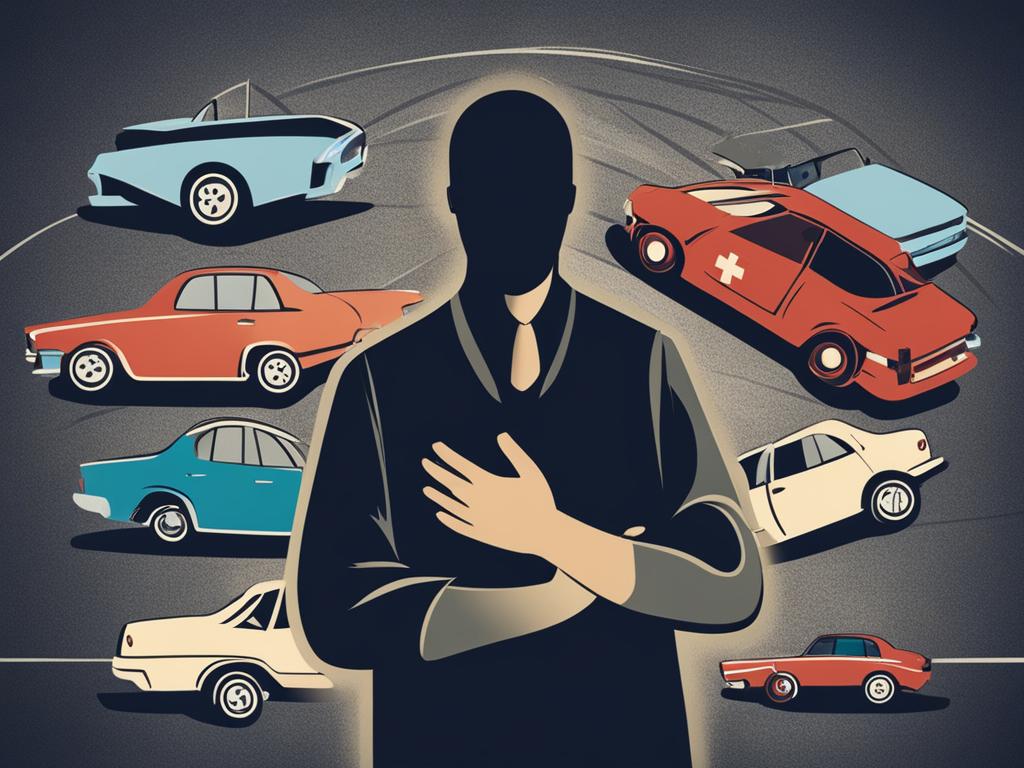
Protecting Your Rights with Legal Help After a Car Accident
After a car accident, it is essential to seek legal assistance to protect your rights and ensure fair compensation for your injuries. A personal injury lawyer can guide you through the complex legal process and advocate on your behalf. They have the expertise to handle insurance claims, gather evidence, negotiate settlements, and even represent you in court if necessary.
Having legal representation allows you to focus on your recovery while knowing that someone is fighting for your rights. By entrusting your case to a skilled attorney, you can alleviate the stress and uncertainty that often accompanies car accident injuries.
“A personal injury lawyer can be your staunchest ally in seeking the compensation you deserve after a car accident.”
By working with a personal injury lawyer, you can benefit from their knowledge and experience in navigating the legal system. They understand the intricacies of car accident laws, ensuring that your rights are protected and that you receive the maximum compensation possible.
Additionally, a lawyer can assist you in gathering the necessary evidence to support your claim. This can include obtaining police reports, medical records, and witness statements. These pieces of evidence are crucial for establishing liability and proving the extent of your injuries.
Furthermore, a personal injury lawyer can skillfully negotiate with insurance companies on your behalf. They understand the tactics used by insurers to undervalue claims and will fight for a fair settlement that covers your medical expenses, lost wages, and pain and suffering.
In case settlement negotiations fail, your attorney can represent you in legal proceedings. They will diligently advocate for your rights in court, presenting your case in the most compelling manner possible.
Protecting your rights with legal help after a car accident is vital for obtaining the compensation you deserve and ensuring that justice is served.
| Benefits of Legal Representation After a Car Accident | Why Hire a Personal Injury Lawyer? |
|---|---|
| A knowledgeable legal advocate who understands car accident laws | Professional guidance through the complex legal process |
| Assistance with gathering the necessary evidence for your claim | Negotiation skills to secure a fair settlement |
| Representation in court if the case goes to trial | Protection of your rights and maximum compensation for your injuries |
By enlisting the help of a personal injury lawyer, you can level the playing field and ensure that your rights are protected throughout the legal process. Their expertise and dedication will provide you with the best opportunity for a successful outcome in your car accident injury claim.
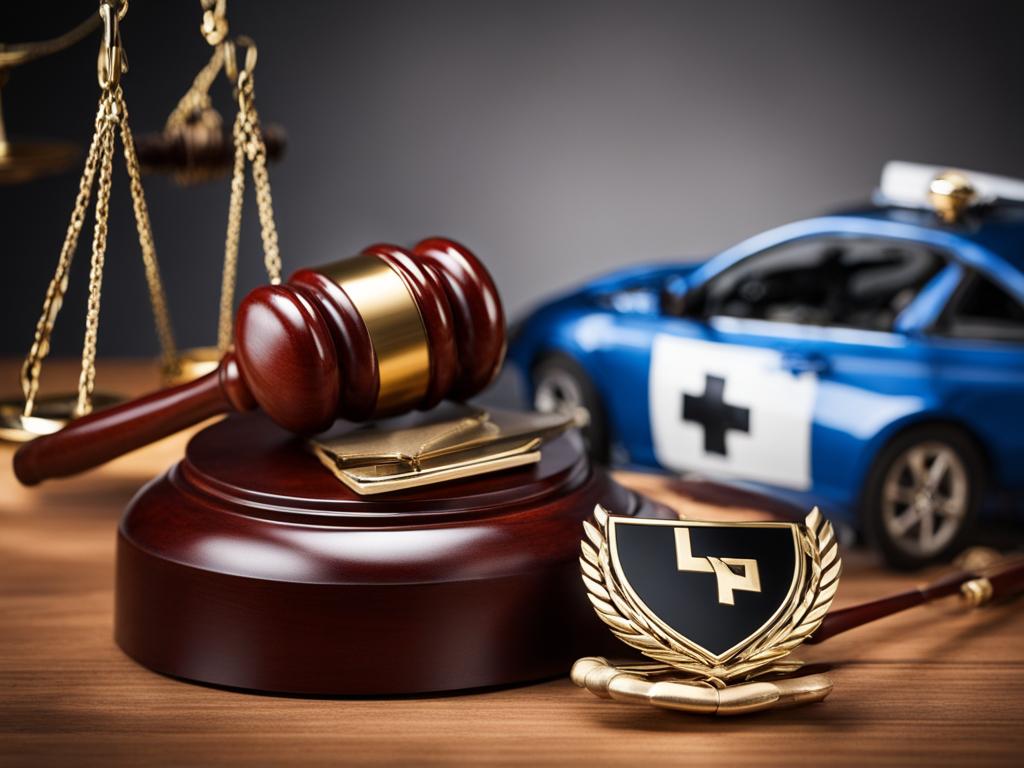
Importance of Prompt Medical Evaluation for Chest Pain After a Car Accident
Suffering from chest pain after a car accident is a serious concern that should never be ignored. To ensure your health and well-being, it is crucial to seek prompt medical evaluation by a qualified healthcare professional. Immediate evaluation allows for accurate diagnosis, effective treatment planning, and the early detection of any potential complications.
When it comes to chest pain after a car accident, it’s important to remember that symptoms may not be immediately apparent. In fact, some injuries may only manifest hours or even days after the accident. Delaying medical care can significantly worsen your condition and potentially lead to long-term complications. To safeguard your health, it is essential to prioritize your well-being and promptly seek medical attention.
Medical evaluation following a car accident serves several vital purposes. Firstly, it enables healthcare professionals to accurately diagnose the cause of your chest pain. This critical step ensures that the appropriate treatment strategies are implemented, addressing both the immediate and underlying issues contributing to your discomfort.
| Benefits of Prompt Medical Evaluation: |
|---|
| – Accurate diagnosis of chest pain causes |
| – Effective treatment planning |
| – Early detection of potential complications |
| – Creation of necessary medical records for insurance claims and legal actions |
Additionally, seeking medical evaluation generates crucial medical records that can be used for insurance claims or potential legal actions. These records serve as concrete evidence of your injuries and the required medical care, helping you substantiate any compensation claims you may pursue.
Remember, the importance of prompt medical evaluation for chest pain after a car accident cannot be overstated. By seeking immediate medical care, you can protect your health, ensure accurate diagnosis and treatment, and generate essential documentation for insurance claims or potential legal actions. Prioritizing your well-being is crucial in your road to recovery.
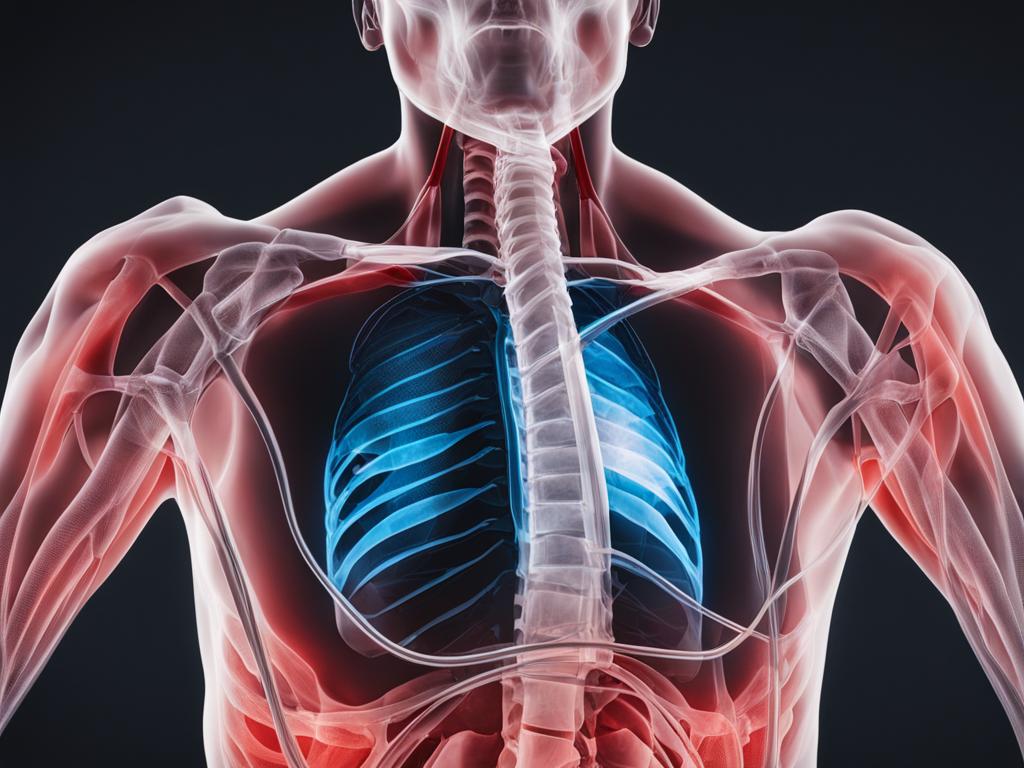
Seeking Compensation for Car Accident Chest Pain
If you have experienced chest pain as a result of a serious chest injury sustained in a car accident, it is important to understand that you may be eligible to seek compensation. Whether through insurance claims or legal actions, pursuing compensation can help alleviate the financial burden of medical expenses and other related costs that have resulted from your injury.
The specific amount of compensation you may be entitled to depends on various factors, including the severity of your injury, the impact it has had on your daily life, and the circumstances surrounding the car accident. In general, compensation can cover medical expenses, lost income due to missed work, pain and suffering resulting from the accident, and other non-economic consequences.
Consulting with a Personal Injury Lawyer
To navigate the complexities of seeking compensation for your car accident chest pain, it is highly recommended to consult with a personal injury lawyer. A knowledgeable attorney can provide guidance and support throughout the legal process, ensuring that your rights are protected and that you receive the compensation you deserve.
By working with a personal injury lawyer, you can better understand the legal options available to you and make informed decisions regarding your case. An attorney can help you gather necessary evidence, negotiate with insurance companies on your behalf, and represent your interests in court if a settlement cannot be reached.
Additionally, a personal injury lawyer can assess the full extent of your damages and pursue maximum compensation based on the specific details of your case. Their expertise and experience with similar claims can greatly benefit your pursuit of justice and fair compensation.
Remember, seeking compensation for your car accident chest pain is your right, and legal representation can significantly increase your chances of a successful outcome. Don’t hesitate to reach out to a personal injury lawyer who can advocate for your interests and help you navigate the legal process with confidence.
| Advantages of Seeking Legal Representation | How a Personal Injury Lawyer Can Help |
|---|---|
| 1. Expertise in personal injury law | 1. Navigate the legal process effectively |
| 2. Experience with insurance claims | 2. Gather necessary evidence to support your case |
| 3. Negotiation skills | 3. Negotiate with insurance companies for fair compensation |
| 4. Maximizing compensation | 4. Represent your interests in court, if necessary |
The Role of Legal Representation in Car Accident Chest Pain Cases
When dealing with the aftermath of a car accident that has caused chest pain, it is essential to have legal representation by your side. Car accident lawyers play a crucial role in ensuring that your rights are protected and that you receive fair compensation for your injuries and damages.
Lawyers specializing in car accident cases have the expertise and knowledge to navigate the complex legal process. They understand the intricacies of insurance claims and can effectively communicate with insurance companies on your behalf. By handling negotiations and settlements, they work tirelessly to secure a favorable outcome for your case.
One of the key responsibilities of a car accident lawyer is gathering evidence to support your claim. They will thoroughly investigate the accident, collect relevant documents, such as medical records and police reports, and interview witnesses if necessary. This comprehensive approach strengthens your case and increases the chances of a successful resolution.

The Value of Legal Representation
Having legal representation allows you to focus on your recovery while knowing that your case is being handled by experienced professionals. Your lawyer will advocate for your rights, ensuring that you receive the necessary medical care and treatment for your chest pain.
A car accident lawyer will assess the full extent of your injuries, including the physical, emotional, and financial impact. They will calculate the compensation you deserve, including medical expenses, lost wages, pain and suffering, and other damages that may apply to your situation.
Furthermore, if your case cannot be resolved through negotiation, a car accident lawyer will be prepared to represent you in court. They will present your case effectively, using their legal expertise and persuasive skills to argue on your behalf.
Overall, legal representation in car accident chest pain cases provides you with peace of mind and confidence that you are receiving the support and advocacy you need during this challenging time.
| Benefits of Legal Representation in Car Accident Chest Pain Cases |
|---|
| Knowledge of the legal process |
| Ability to handle insurance companies |
| Expertise in gathering evidence |
| Effective negotiation and settlement skills |
| Representation in court, if needed |
| Thorough assessment of injuries and damages |
| Calculation of fair compensation |
With legal representation, you can focus on your recovery and leave the legal complexities in the hands of professionals who will fight for your best interests. Seeking legal assistance ensures that you have an experienced advocate by your side, maximizing your chances of a favorable outcome in your car accident chest pain case.
Conclusion
Experiencing chest pain after a car accident is a serious matter that should not be ignored. It can be a sign of various injuries, such as muscle strains, broken ribs, lung or heart damage, or other internal injuries. Therefore, seeking immediate medical evaluation is crucial to ensure proper diagnosis and treatment.
Getting prompt medical care is essential because some injuries may not be immediately apparent and delaying treatment can lead to complications. By seeking medical attention, you enable healthcare professionals to accurately assess your condition, create a tailored treatment plan, and monitor potential health issues. This also generates important medical records for insurance claims or potential legal actions.
Aside from prioritizing your health, it’s important to protect your legal rights by consulting with a car accident lawyer. They can guide you through the legal process, handle insurance companies, gather evidence, negotiate settlements, and represent you in court if necessary. Having legal representation ensures that your rights are protected and increases your chances of obtaining fair compensation for your injuries and damages.
Remember, taking these steps not only ensures your well-being but also helps you seek appropriate compensation for your injuries. Don’t hesitate to seek medical help and consult with a car accident lawyer to receive the necessary care and support you deserve.
FAQ
What should I do if I experience chest pain after a car accident?
It is crucial to seek immediate medical evaluation for proper diagnosis and treatment. Contacting a car accident lawyer can also help protect your legal rights.
What are the common causes of chest pain after a car accident?
Common causes of chest pain after a car accident include muscular strain, broken ribs, lung or heart injuries, and other internal damage from the force of the collision or seatbelt use.
Can seatbelts cause chest injuries in a car accident?
Yes, seatbelts can cause chest injuries such as bruising, fractured sternum, muscular strain, rib fractures, or organ damage due to the force of the seatbelt during impact.
How are chest injuries treated after a car accident?
Treatment options may include rest, physical therapy, medications, and lifestyle changes. In more severe cases, surgeries or mental health support may be recommended.
What evidence should I collect for a car accident claim involving chest pain?
It is important to gather documentation such as police reports, photographs, witness statements, and details about the incident to prove fault in a potential claim for damages.
Is follow-up treatment necessary for chest pain after a car accident?
Yes, follow-up care is crucial for monitoring potential complications, ensuring the effectiveness of prescribed treatments, and addressing mental health implications.
Should I discuss my chest pain with the insurance company after a car accident?
It is advised not to discuss chest pain or treatment with the insurance company without consulting a car accident lawyer who can protect your rights and negotiate fair compensation.
What are the common types of chest injuries after a car accident?
Common chest injuries after a car accident include muscle strains, broken bones, lung injuries, heart injuries, and other internal injuries.
What are the common causes of chest pain after a car accident?
Chest pain after a car accident can be caused by anxiety, muscle strains, broken ribs, lung injuries, heart injuries, or other internal injuries.
What treatment options and compensation are available for car accident chest injuries?
Treatment options may include emergency care, surgeries, physical therapy, medications, and mental health support. Compensation can cover medical expenses, lost income, pain and suffering, and other consequences.
How can legal help protect my rights after a car accident?
Seeking legal assistance can navigate the legal process, handle insurance claims, gather evidence, negotiate settlements, and represent you in court if needed, ensuring fair compensation for your injuries and damages.
Why is prompt medical evaluation important for chest pain after a car accident?
Prompt medical evaluation is crucial for proper diagnosis, treatment planning, and monitoring potential health issues that may arise after a car accident.
Can I seek compensation for chest pain after a car accident?
If your chest pain is caused by a serious chest injury, you may be entitled to seek compensation through insurance claims or legal actions for medical expenses, lost income, pain and suffering, and other consequences.
What role does legal representation play in car accident chest pain cases?
Legal representation can protect your rights, navigate the legal process, handle insurance companies, gather evidence, negotiate settlements, and represent you in court if necessary, ensuring a fair outcome for your case.

